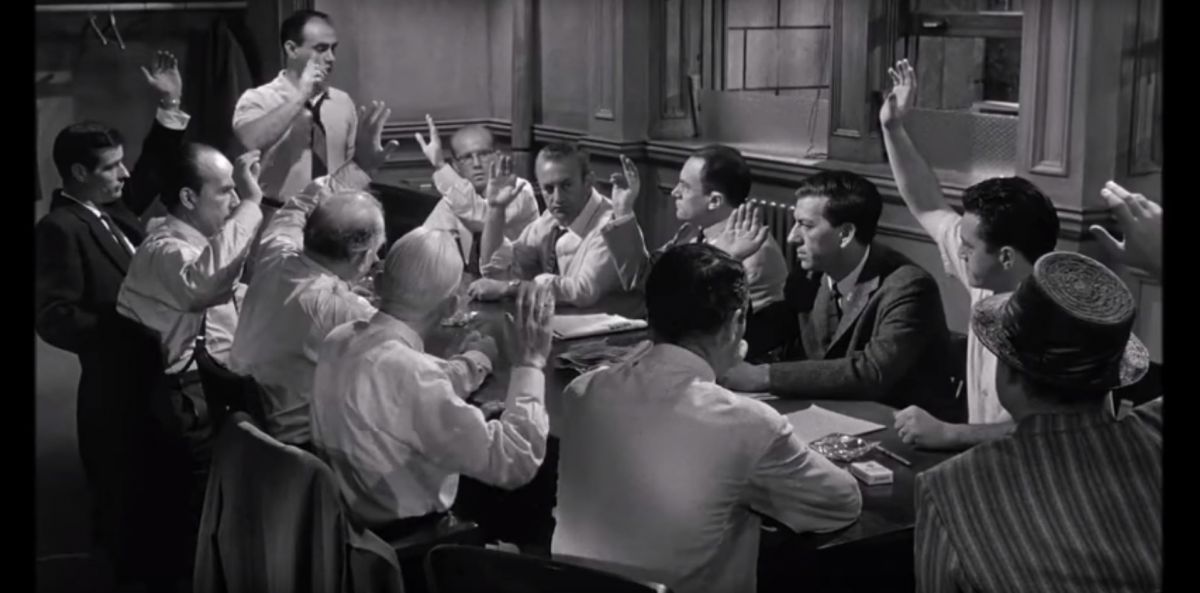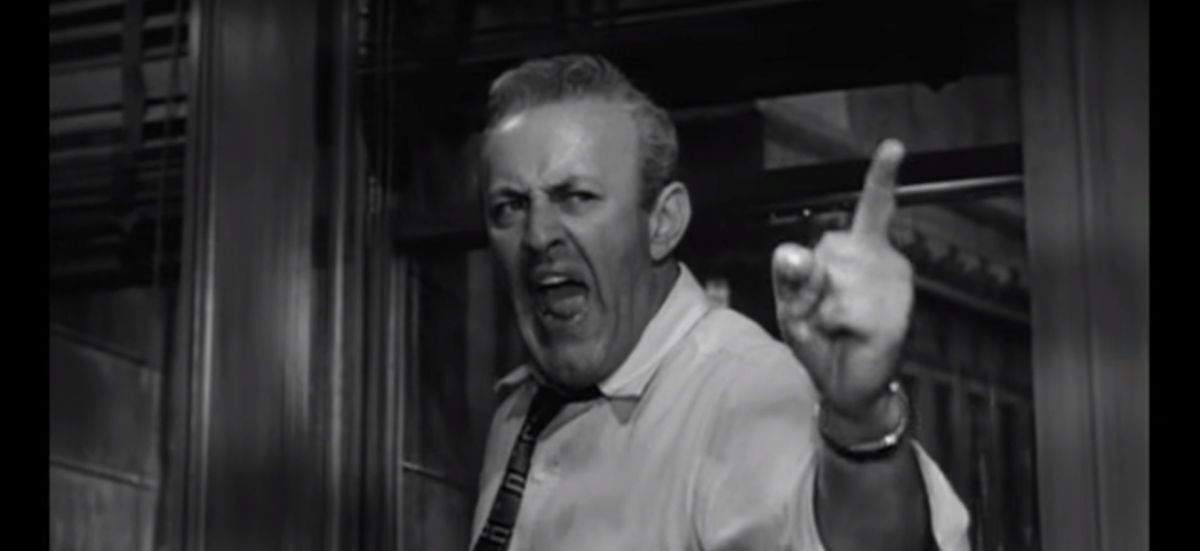In the 1957 courtroom drama 12 Angry Men an eighteen-year-old boy is on trial for allegedly murdering his father. The film starts at the end of the trial when the jury resides. From then on, the fate of the boy lies in the hands of 12 randomly selected men. If the suspect is found guilty of murdering his father, he will be sentenced to death.
A lot of convincing evidence was introduced against the defendant during the trial, and the defendant's lawyer hasn't done much to refute the claims. Most jury members are certain of the boys' guilt. The men start off by taking a vote. “Who votes guilty?” the jury's chairman asks. Eleven hands rise, one stays down; the hand of juror number eight, played by Henry Fonda. "It's an open and shut case", yells another annoyed juror whom is surprised by the vote. The American law system, however, states that a jury has to be unanimous about their verdict and there is one man holding out. Number eight points out that it's not fair to not even talk about the verdict when there is a life at stake. “What difference does it make how long we think and talk about it if the outcome is the same?” asks one of the other jurors.

Beyond reasonable doubt
While the jury members are taking their time in thinking about their verdict, new insights arise. Maybe the evidence wasn't as airtight after all? At first, the eleven men are certain of the boy's guilt. All the evidence points in his direction, there seems to be no doubt. But after discussing it for a while, some of the jury member's certainty begins to crumble: “Yes, it is probable that the murder knife is indeed the knife of the boy, but isn't it also possible that it was someone else's? That it is just an unlucky coincidence that the boy had bought an exact same knife as the murderer?” When claiming that someone is guilty, a jury has to be certain. They have to be confident that someone's guilt can be ascertained 'beyond reasonable doubt'.
During the discussion between the twelve men tension increases and more and more fundamental questions about law and trials are raised. How reliable is an eye witness? What role does a suspect's personal history and background play and how does this influence any prejudices about him? When is improbable improbable enough to pass as 'beyond reasonable doubt'?

Personal beliefs
Our personal beliefs, morals and values make up a large part of our identity. It's not easy to let go of them. The jurors in the film are all defined in terms of their occupations, economic backgrounds, prejudices and emotional tilts. The fact that the boy grew up in a bad neighbourhood and is Puerto-Rican, for instance, results in lots of assumptions and prejudices among some of the jury members. But in search for truth you sometimes have to let go of your personal ideas and convictions. Especially in court, when lives are at stake.
Law professor Elaine Mak points out that in the Netherlands - where there is no trial by jury, but a judge or judges decide on a person's guilt - the judges are trained to help them to set personal beliefs aside. They are trained on psychological aspects of decision-making, for example. They learn that the evidence that is presented first, has the most impact on your judgment. Knowing this, they can recognize this and consciously give the other evidence some extra attention. They are also trained in interpreting forensic evidence or statistics. In this way, they follow a more structured path of reasoning than the jury members do.
Pitfalls in our thinking
Even though the movie is already sixty years old, it is still relevant. Issues of identity and background dominate current public debates on truth. When something that is generally considered to be true doesn't fit your ideals or political opinions, you can easily present your own findings as 'alternative facts'. Slow thinking is key, now maybe more than ever. Not only in court, but outside it as well. Want to know more about pitfalls in our thinking? We've had a Dutch series of lectures about them, which you can find in our archive.
Missed the lecture? Watch '12 angry men' online!

